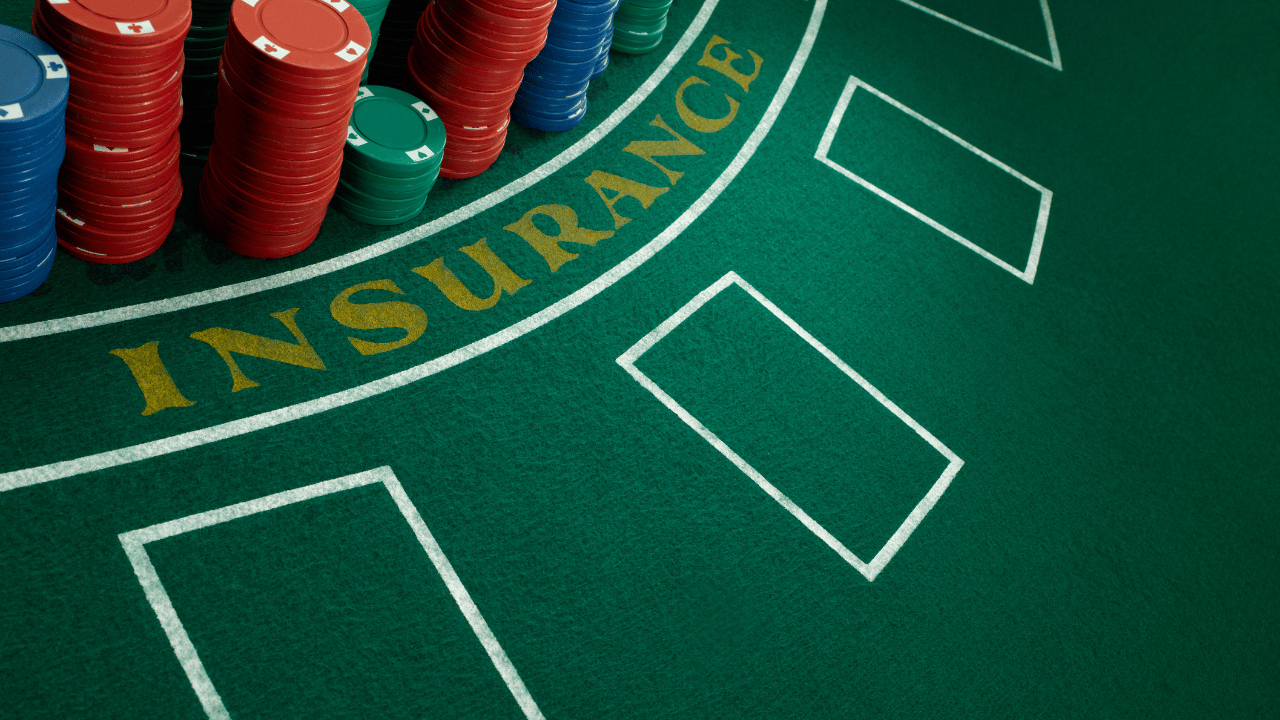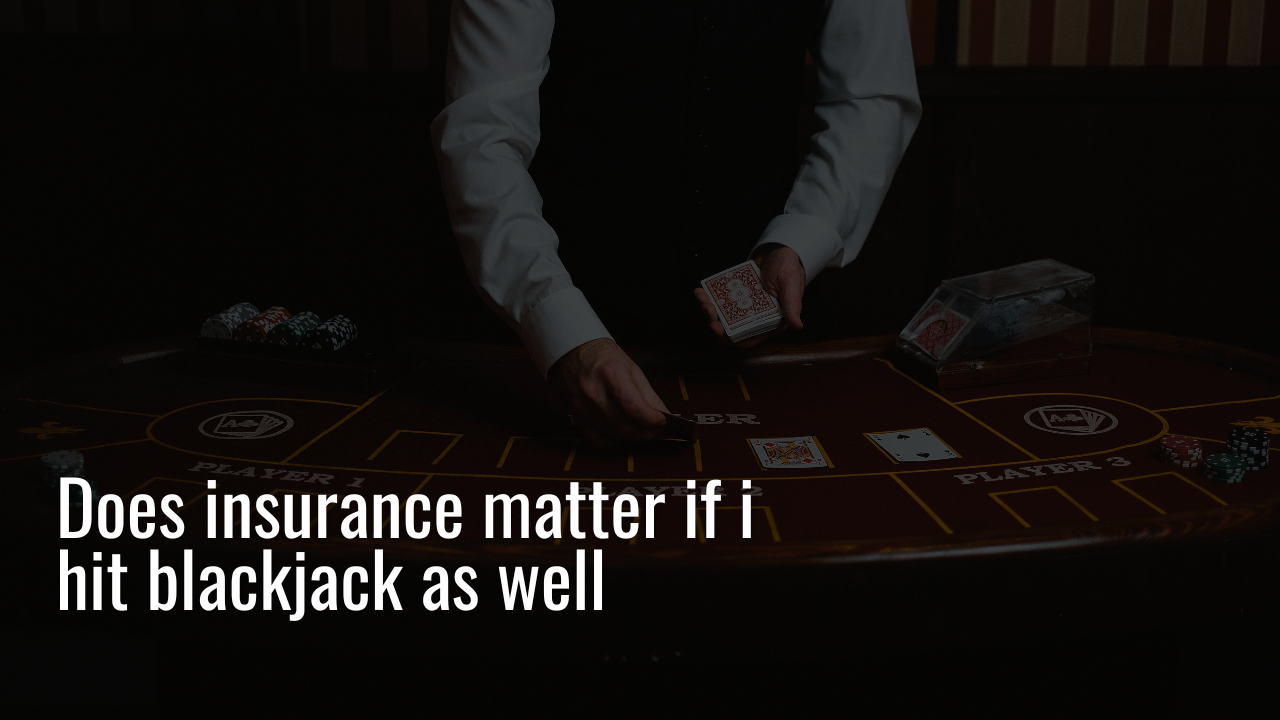You’re at the blackjack table, adrenaline pumping as the dealer reveals their ace. Suddenly, they ask if you want insurance. What do you do? Here’s the kicker: in most cases, taking insurance is one of the worst moves you can make in blackjack. Studies show that over the long term, insurance bets increase the house edge significantly. Yet, the allure of “protecting” your hand against the dealer’s potential blackjack can feel too tempting to resist.
Understanding the nuances of insurance in blackjack isn’t just for seasoned players—it’s critical for anyone who wants to walk away from the table with more than just an empty wallet.
This guide breaks down the math, the psychology, and the strategy behind insurance bets. By the end, you’ll know when—if ever—insurance makes sense, and how to play smarter every time you sit at the table. Ready to stack the odds in your favor? Let’s dive in!
What is Insurance in Blackjack?

Insurance is a side bet offered when the dealer’s upcard is an ace. The premise is simple: you wager half your original bet, and if the dealer reveals a blackjack, you win 2:1 on your insurance bet. While this might sound like a good deal, the odds rarely work in your favor. In fact, statistics reveal that dealers will only have a blackjack about 31% of the time when showing an ace.
The Math Behind Insurance Bets
To understand why insurance is generally a bad idea, let’s crunch the numbers. Imagine you bet $100, and the dealer offers insurance for $50. If the dealer does have blackjack, you win $100 on the insurance bet but lose your original $100 wager, breaking even. If the dealer doesn’t have blackjack, you lose the $50 insurance bet outright. The payout structure and probability mean that over time, you’re likely to lose more money taking insurance than declining it.
Why Do Players Take Insurance?
Taking insurance often appeals to players’ fear of losing. The psychological comfort of “protecting” your hand can overshadow logical decision-making. Additionally, less experienced players may not fully understand the statistical disadvantage of insurance bets. Casinos capitalize on this by presenting insurance as a smart or “safe” choice, when in reality, it’s another way to boost the house edge.
When Should You Take Insurance?
While insurance is usually a poor choice, there are rare exceptions:
- Card Counting: If you’re an experienced card counter and can accurately determine that the deck is rich in tens and face cards, insurance might make sense. However, this requires a high level of skill and discipline.
- Specific Game Variants: Certain blackjack variants or house rules may alter the odds, making insurance more viable. Always review the game’s rules before deciding.
For the average player, though, the best advice is simple: skip insurance.
How to Play Blackjack Smarter
Rather than relying on insurance bets, focus on strategies that improve your overall gameplay:
- Learn Basic Strategy: Understanding the optimal moves for every possible hand combination reduces the house edge and increases your chances of winning.
- Bankroll Management: Set a budget for your blackjack sessions and stick to it. Avoid chasing losses or making impulsive side bets.
- Avoid Side Bets: Similar to insurance, most side bets have a high house edge and are designed to benefit the casino.
- Stay Calm and Focused: Emotional decisions often lead to poor choices. Keep a clear head and stick to your strategy.
Final Thoughts
Insurance bets may seem appealing, but the numbers don’t lie: they’re rarely a good move. By understanding the mechanics of the game and resisting the temptation to take insurance, you’ll position yourself for smarter, more strategic play. Remember, blackjack is a game of skill and probability—and knowledge is your greatest advantage.
So the next time the dealer flashes an ace and asks, “Insurance?” you’ll know exactly what to do.












